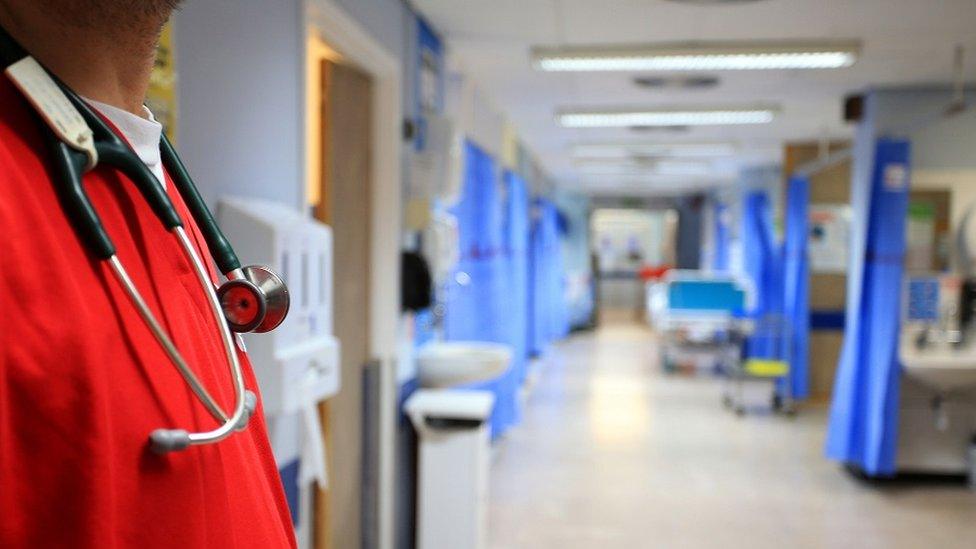Call to cancel more procedures to cut Scotland's hospital pressures
- Published
- comments
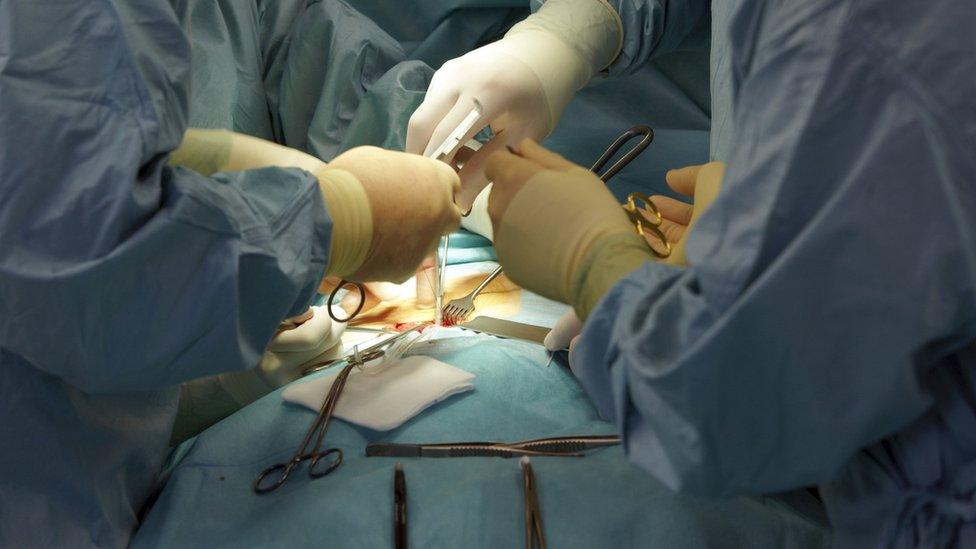
A senior public health official has said it would 'make sense' to cancel some operations
Health boards should consider cancelling non-urgent procedures to reduce pressure on hospitals, a senior public health official has said.
Jillian Evans, the head of health intelligence at NHS Grampian, said it would "make sense" to defer some operations.
It comes after two hospitals reached full capacity in the north east.
NHS Lanarkshire and NHS Highland have also reported pressure on services in recent days.
NHS Lanarkshire said it had considered scaling back procedures due to staff absences and rising Covid admissions.
And NHS Highland cancelled all non-urgent elective surgery and most outpatient activity at Inverness' Raigmore Hospital amid growing pressure.
The health boards said self-isolation requirements meant that a number of staff who were double vaccinated had to stay off after being in contact with the virus outside of work.
'Difficult decisions'
Ms Evans told the BBC's Good Morning Scotland programme that health boards across Scotland were going to see a "really busy" period over the next two months.
She said: "It would make sense for us to try to mitigate as many risks of safety of the health of our population and our staff as possible by making some difficult decisions about elective care.
"That is where I think it would make more sense to start thinking about reducing pressure there couple with any changes and evidence that emerge about the safety of people when they are double jabbed."
Asked whether it would make sense to start cancelling operations now, she said: "It would make sense to look at deferring some of those.
"It is better to do that in a planned way then to do it on the day, that disrupts and causes upset for everyone. We want to be honest with people and help them understand what to expect."
Another possible solution would be to reassess whether double vaccinated health and social care staff need to self isolate if they had been in contact with the virus, according to Prof Jackie Taylor, president of Royal College of Physicians and Surgeons in Glasgow.
Instead, she said staff identified as contacts would take a PCR test and if it was negative, return to work while taking daily lateral flow tests.
However, she said there would need to be "very firm evidence" that changes to the quarantine policy would be beneficial.
She told Good Morning Scotland: "I think it's not unreasonable to consider looking at a more proportionate policy for double vaccinated people.
"We're going to have do this when we start exploring what happens after level zero anyway but I think it is extremely important that we look at everything else we can do to reduce pressure on the system.
"I would certainly want to see a clear rationale and evidence that is an effective strategy both safe for patients and staff."
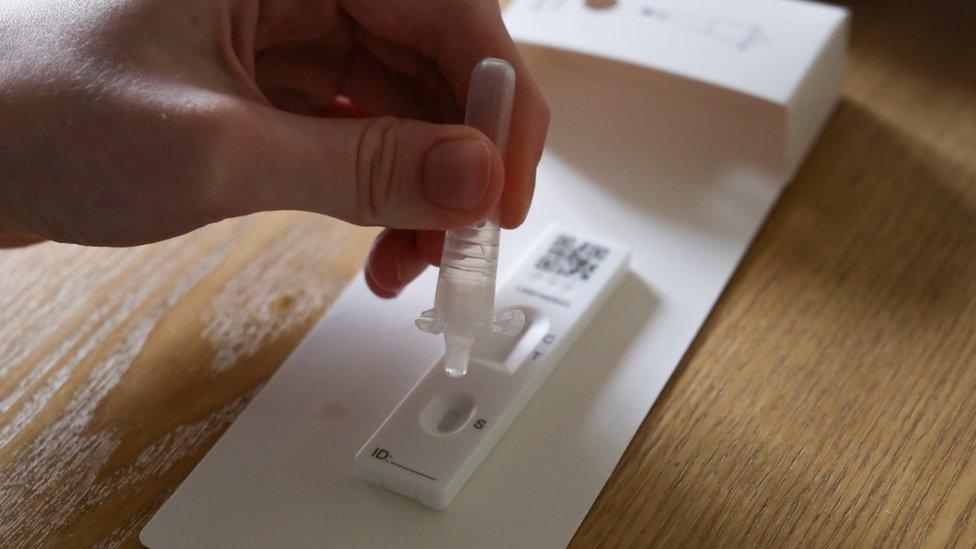
Staff could be encouraged to take daily lateral flow tests (after having a negative PCR test) to avoid having to self-isolate
Earlier this week Scotland's education secretary said having different isolation rules for fully vaccinated people was being "actively reviewed" as a potential way of easing staffing pressures in hospitals, schools and other public services.
Ms Evans said she agreed a change to self isolation rules for NHS staff would "inevitably" ease pressure on hospitals - but there was still the danger than one in five people who are double vaccinated could still go on to have Covid.
Scotland is expected to move to level zero, external on 19 July, with remaining legal restrictions lifted on 9 August - however, the first minister said the planned dates were not "set in stone".
The Scottish government said it was closely monitoring data after it was revealed that Scotland has the highest Covid rates in Europe.

What does the data say about under-pressure hospitals?
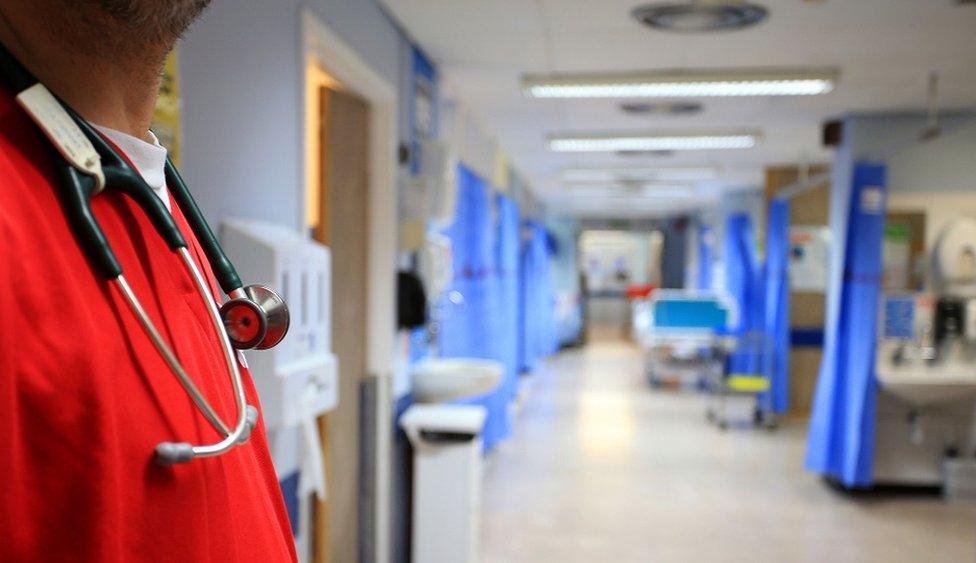
Analysis by BBC Scotland data journalist Marc Ellison
An increasing number of health boards are saying that drastic measures may be needed in light of a surge in coronavirus cases.
Is this reflected in the latest official data? In a word, no.
Unlike the Covid-specific data sets, which only lag by a few days, the current figures on A&E activity, external and admissions, external only take us up to 27 June.
So what, if any, warning signs were there in the data of mounting pressure on boards and their hospitals? NHS Lanarkshire said this week that it had seen "unprecedented levels" of attendance at A&E departments. But the data shows that attendance was down at all three of the board's hospitals by an average of 9% between the 6 and 27 June.
In fact, people going to A&E only increased slightly at some hospitals like Shetland's Gilbert Bain Hospital (4%).
So what about pressure on planned operations? NHS Grampian said that Aberdeen Royal Infirmary (ARI) and Dr Gray's Hospital in Moray had postponed all non-urgent procedures. But again the data is limited and only gives us a snapshot in time.
All we know, for example, is that by the end of May, ARI saw an increase of 15% in cancellations related to capacity
Boards have also blamed staff absences - due to self-isolation requirements and summer holidays - for the mounting pressure on their resources. The Scottish Government does record and publish this daily, but not at a board level. However, we can still see that staff absences more than doubled from 1,238 to 2,760 between 1 June and 6 July.
So essentially while data sets do exist, they lag too far behind to give us a real-time picture.


Related topics
- Published7 July 2021
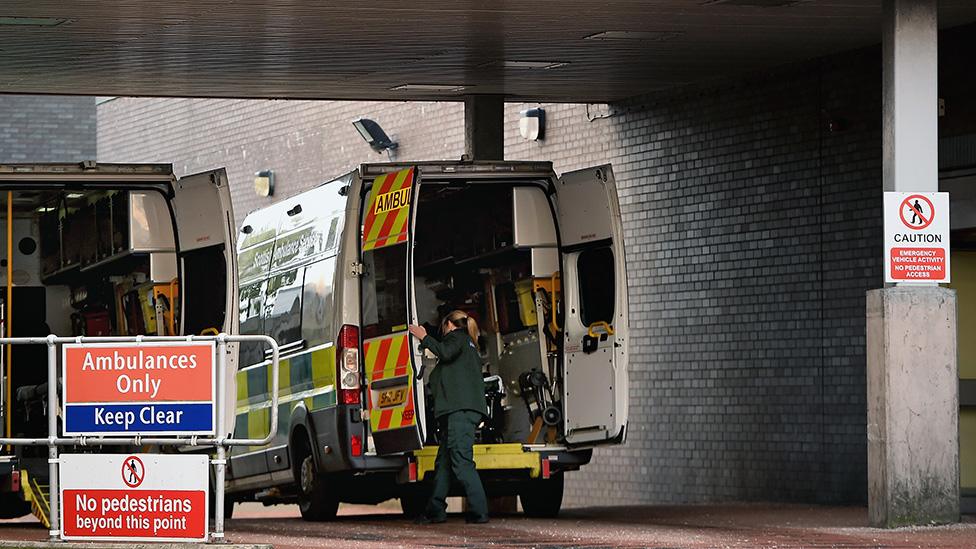
- Published7 July 2021
